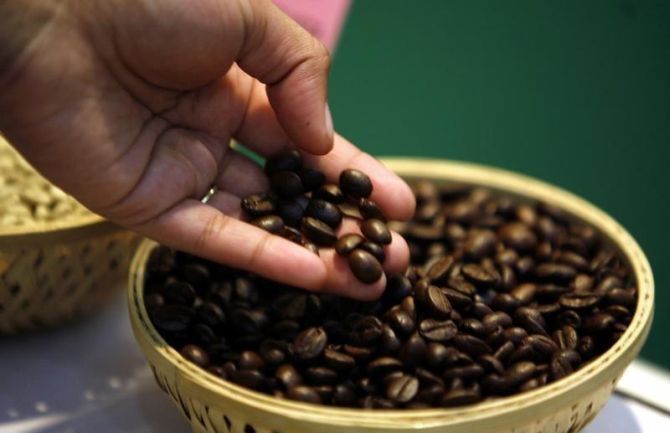Karnataka suffered a crop loss in around 97,365 hectares out of the total bearing area of 2,26,244 hectares of coffee and spices plantations.

Floods and landslides in Karnataka and Kerala have damaged swathes of coffee and spice crops in plantations that supply the bulk of India’s demand.
The Coffee Board has done preliminary surveys (current year) in the calamity-affected areas in Karnataka and Kerala to estimate the damage to coffee plantations due to floods and landslides.
According to the preliminary assessment in Karnataka, of the crop-bearing area of 226,244 hectares (one hectare = 110,000 square feet), about 97,365 hectares has suffered a crop loss of more than 33 per cent and 620 hectares is reported to have been affected by landslides and floods.
In Kerala about 850 hectares has been reported to be affected by a crop loss of more than 33 per cent and about 16 hectares of plantations are reported to have been affected by landslides and floods.
According to the assessment made by the Directorate of Horticulture, Karnataka, 11,502 hectares of black pepper, 3,184 hectares of ginger, 573 hectares of turmeric, and 25,891 hectares of chilli have been severely affected owing to heavy rain this year with an estimated crop loss of more than 33 per cent.
Around 43 per cent of the crop-bearing areas of Karnataka is estimated to have been affected with more than 33 per cent crop loss, said Commerce and Industry Minister Piyush Goyal.
The Coffee Board of India has done preliminary surveys in the two states to estimate the damage due to floods, landslides, premature fruit drop, and fungal diseases, he said.
In Kerala, the Department of Agriculture Development and Farmers’ Welfare has assessed the impact of the rain and found 167.79 hectares was affected.
The affected area includes 40.23 hectares of pepper, 88.67 hectares of nutmeg, 13.25 hectares of ginger, 25.08 hectares of cardamom, and 0.56 hectares of clove. Nearly 7,658 farmers have been affected.
The Spice Board assisted the government of Karnataka in assessing the damage caused to cardamom plantations in Coorg district.
According to the report, about 1,800 hectares of cardamom plantations have been affected with a crop loss of more than 33 per cent.
The report has been submitted to the state government.
Under the provisions of the State Disaster Response Fund and the National Disaster Response Fund, relief in the form of input subsidies for agricultural crops, horticulture crops, annual plantation crops, perennial crops, and sericulture is provided when crops loss is 33 per cent and above.
For perennial crops, norms of assistance are Rs 18,000 per hectare.
The Coffee Board, Spices Board, and Directorate of Arecanut and Spices Development have not constituted any task force during the current year to assess the extent of damage.
Coffee and spices need three-four years to give economic yields after planting.











